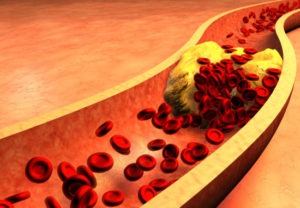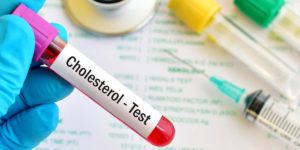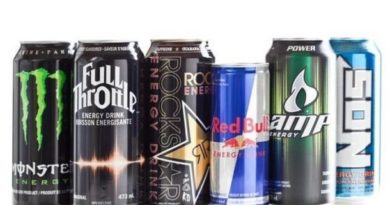How to Know if Your Cholesterol Levels are Out Of Control
When people get to a certain age, they start to present some general health problems, being heart diseases and arteries difficulties the principal of them. Cholesterol levels are associated with these two principal diseases, bringing so many difficulties to our health. It is commonly associated with age but it is highly interlinked with foods and nutrition.

Cholesterol is a fatty element well-known as a lipid and is essential for the normal performing of the organism. It’s principally produced by the liver, and it can be located in many foods as well.
Having these levels of lipids out of control in your blood, causing hyperlipidemia can have consequences on your health. High cholesterol levels don’t produce any sign by itself but elevateyour chance of critical health conditions.
Now you might be asking, how do I know if I’m having cholesterol problems if it doesn’t produce any sign by itself? Continue reading and you will know not just how to recognize the signs but comprehend the importance to carry a healthy lifestyle.
Understanding Cholesterol
Cholesterol is a fatty substance very important for the formation of cell membranes, certain hormones, and vitamin D, it doesn’t dissolve in water, travels around your body, and is moved by proteins, and when they are together, they’re named lipoproteins. The two principal lipoproteins are:
- High-Density Lipoprotein or HDL, which transports cholesterol back to the liver and away from the cells. In the liver, it’s either passed out or broken down of the body as a remaining product; for this reason, HDL is known as “good” cholesterol, and having high levels of it in blood isn’t that bad.
- Low-Density Lipoprotein or LDL, which is in charge to carry cholesterol to the cells that demand it, but if there are high quantities of cholesterol for the cells to consume, it can get stocked in the artery walls, bringing as a consequence different arteries diseases, for this reason, LDL is referred to as “bad” cholesterol. The inferior your LDL the lesser your risk.

Eating many foods with high quantities of fat elevates LDL cholesterol levels in your blood. This is what it is well known as high cholesterol, hyperlipidemia or hypercholesterolemia. When HDL cholesterol levels are too low or LDL cholesterol levels are too high, lipids start to accumulate in your blood vessels making difficult the bloodstream through your arteries.
There are other forms of lipids that are evaluated to know if you are having coronary problems due to fats accumulation, these are:
- Triglycerides are the form in which fat is stocked and carried through our body. A normal value in a blood test is less than 150 mg/dL, with a maximum of 199 mg/dL but if when going to your routine tests this value is higher than 200 mg/dL you better consult your doctor.
- Total Cholesterol is a measure of HDL cholesterol, LDL cholesterol and other forms of fat components. This measure is used by specialists to determine heart disease risk.
How Do I Know If I Have High Cholesterol Levels?
It’s difficult to recognize if your cholesterol levels are elevated because it doesn’t produce any alerting sign or symptom. Regularly, it causes emergency events like stroke or heart attack that can outcome from the injury produced by high cholesterol levels.
 This is why you must have your blood tested frequently because a blood test is the only method to discern if your cholesterol is too high. It’s recommended to get your cholesterol checked every 4 or 6 years after you turn 20, equally, doctors suggest to have your cholesterol checked more often if you have a genetic predisposition, or if you show some
This is why you must have your blood tested frequently because a blood test is the only method to discern if your cholesterol is too high. It’s recommended to get your cholesterol checked every 4 or 6 years after you turn 20, equally, doctors suggest to have your cholesterol checked more often if you have a genetic predisposition, or if you show some
risk factors like high blood pressure, smoke or if you are overweight.
Ways to Know If You’re at Risk
It’s true you cannot know immediately if your cholesterol levels are out of control. However, there are some general things you can put an eye on if you suspect of having high cholesterol levels:
- Some medications
- Family story
- Lack of exercise
- Smoking
- Alcohol excesses
- Age
- Overweight
- Sex, men are more probable to have heart attacks than women
- Some medical conditions like thyroid problems or diabetes
What Are The Effects of High Cholesterol Levels?
When cholesterol starts to get accumulated in your blood vessels, plaques begin to form in your arteries blocking them and making them less elastic, causing atherosclerosis decreasing blood flow, making your heart work tougher to impulse blood through them.
 When the oxygen-rich blood flow to your heart is disrupted, there can be chest pain called angina, which isn’t a heart attack but is a disruption of blood flow. However, if this process of blocked vessels continues, there can be higher consequences like a real heart attack or a stroke, when the arteries going to the brain get involved in the plaque buildup process.
When the oxygen-rich blood flow to your heart is disrupted, there can be chest pain called angina, which isn’t a heart attack but is a disruption of blood flow. However, if this process of blocked vessels continues, there can be higher consequences like a real heart attack or a stroke, when the arteries going to the brain get involved in the plaque buildup process.
Cholesterol is needed by the endocrine system to fabricate some hormones like estrogen, progesterone, cortisol, and testosterone. HDL cholesterol and estrogen levels rise up on menstrual cycle in women while LDL cholesterol levels decrease. This is why menopause is associated with a higher risk of heart disease, due to the drop of estrogen levels.
The human brain also needs cholesterol to complete its functions, around 25 percent of cholesterol reserves, being necessary for the protection and development of nerve cells. However, the excess amounts of cholesterol in the brain can be damaging too, causing disruption of blood flow and leading to strokes, deficiency of memory, movement, and difficulty of other roles.
Cholesterol is needed for bile production as well in the digestive system, which is a substance that helps your body break down foods and absorb nutrients. However, when cholesterol levels are elevated in your bile, it can turn into hardstones and crystals in your gallbladder, which can result very aching.
Your quality of life will be improved as soon as you keep an eye on your cholesterol levels to low your risk of heart disease.
How to Improve Your Cholesterol Levels and Having a Healthy Life

- We are what we eat, so choose correctly:
- Eat foods rich in omega-3 fatty acids like salmon, herring, walnuts, they help reducing blood pressure.
- Include whey protein, it has been demonstrated to lower total and LDL cholesterol. It’s found in products like chicken, eggs, and others.
- Saturated fats and trans fats are found in red meat and other full-fat dairy products and they rise total cholesterol levels up.
- Improve your physical activity, 45min cardiovascular activity 5 days a week and you’ll feel awesome. Your HDL levels will rise up, moving cholesterol to the liver so they break them down. You can do any activity you like, walking, swimming, running or cycling are some good examples.
- If you smoke you should consider quitting, acrolein is a chemical substance found in cigarettes that stops HDL function so the transport of cholesterol to the liver is inhibited, elevating cholesterol levels in blood producing atherosclerosis and other malfunctions.
- Alcohol has been associated to raise HDL cholesterol levels as well, so try to drink only in moderation. High amounts of alcohol can cause serious health problems like high blood pressure, strokes and heart failure.
- Always consult your doctor. If you are presenting some of the previous symptoms or suspect on having cholesterol issues, is better you consult your doctor and he will give you a list of recommendations or even medication if the problem is greater.




